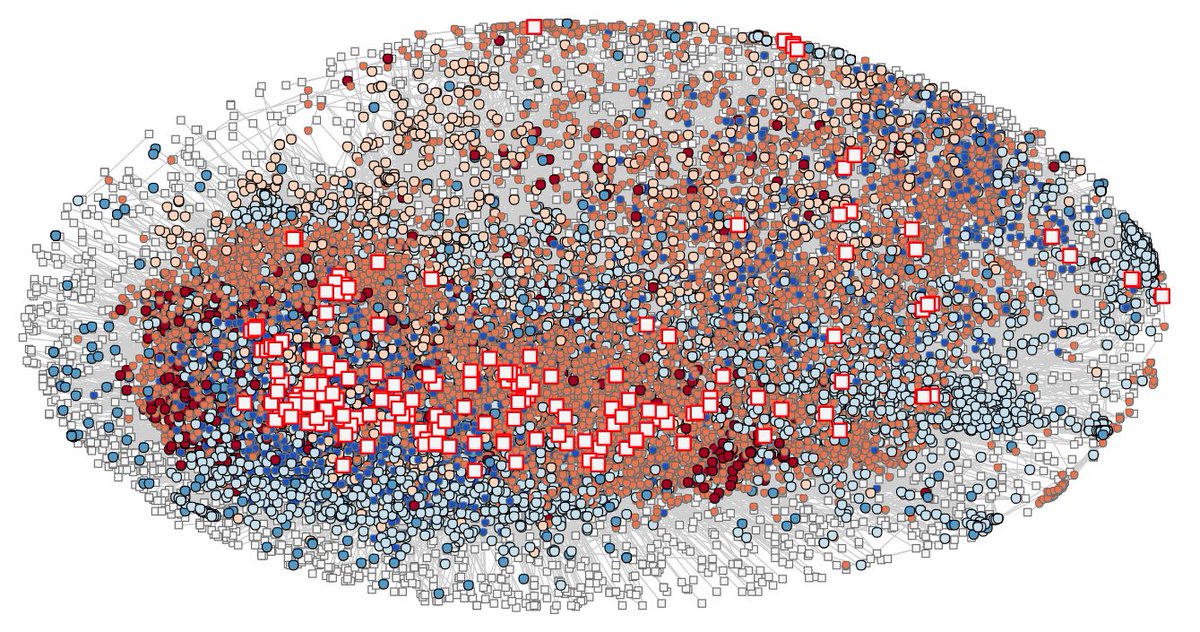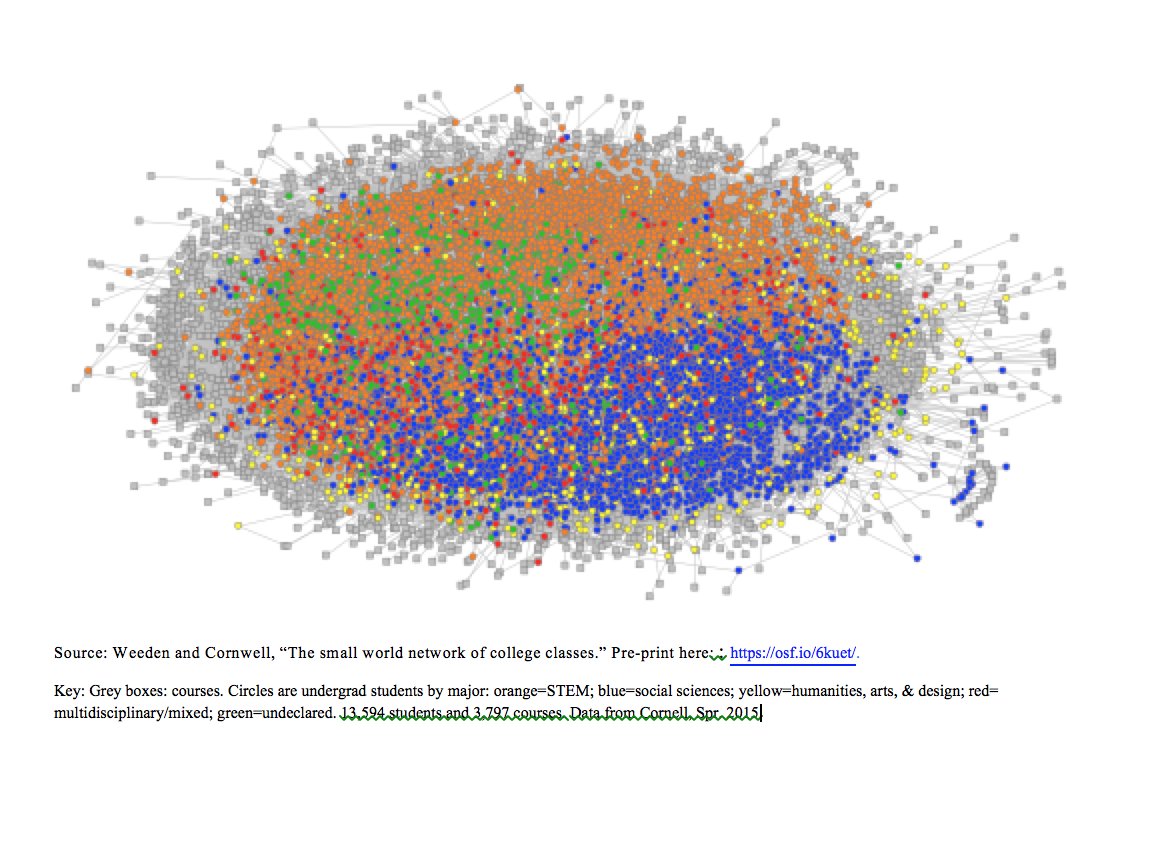
Prof @CornellSoc, director @InequalityCU, founding co-editor @SociologicalSci. Don't speak for these orgs.
Higher ed, inequality, work, gender, Alaska.
3 subscribers
How to get URL link on X (Twitter) App




 Study based on @Cornell data from Fall 2020, when uni went to hybrid instruction. Roughly 28% of class meetings in person.
Study based on @Cornell data from Fall 2020, when uni went to hybrid instruction. Roughly 28% of class meetings in person. https://twitter.com/WStevenHolbrook/status/12783145498175447041. A lot of faith being put on results from a student "survey." Survey was always intended to be quick-and-dirty snapshot of opinions, not one that meets social science standards. E.g., no attention to response rates, nonrandom missingness, question wording/ordering, etc.

 I've tweeted about this paper before, but thought it'd be useful to update now that paper is peer-reviewed & published.
I've tweeted about this paper before, but thought it'd be useful to update now that paper is peer-reviewed & published. https://twitter.com/WeedenKim/status/1258894522127396866

 Course enrollment networks are small-world networks, with high clustering and short average path lengths. Although only small share of students are connected directly (in same class), nearly all students are connected indirectly through a third student.
Course enrollment networks are small-world networks, with high clustering and short average path lengths. Although only small share of students are connected directly (in same class), nearly all students are connected indirectly through a third student.